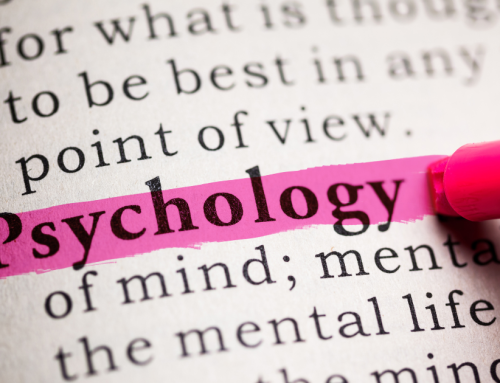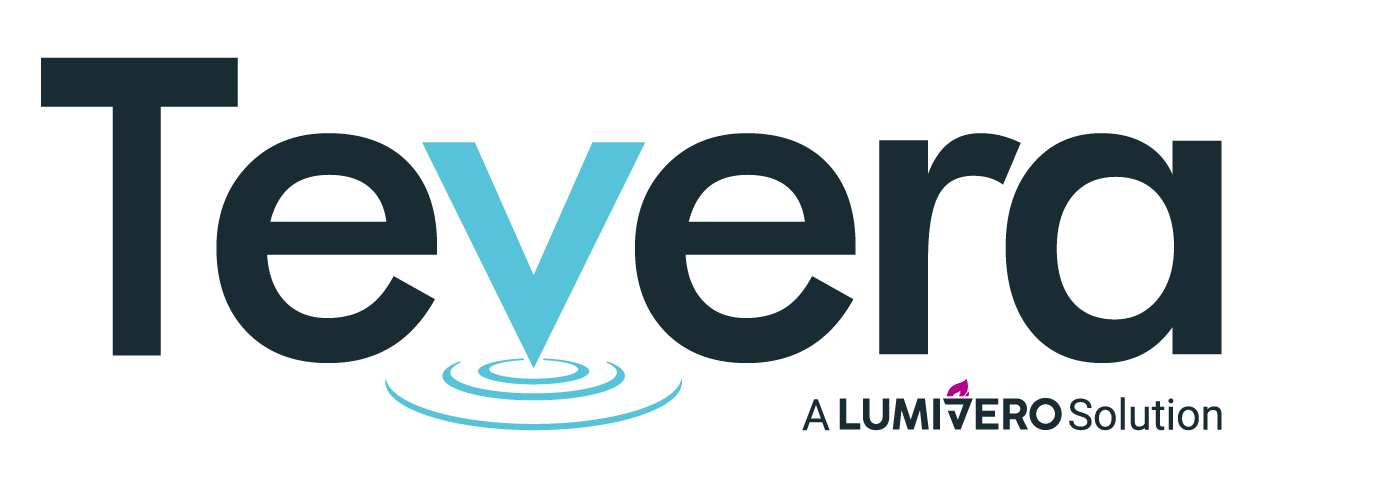Careers and Specialties in Marriage and Family Therapy
Overview
Marriage and family therapy is one of the five core mental health professions in the United States. This is because marriage and family therapists (MFTs) work closely with families and couples to improve domestic life and interpersonal relationships through counseling and treatment.
If you are interested in a career in marriage and family therapy, you first need to identify what area of marriage and family therapy you want to specialize in and then create a career path accordingly. Here we will highlight key marriage and family therapy specialties and provide information on pursuing a career as an MFT.
Marriage and Family Therapy as a Profession
According to the Bureau of Labor Statistics, the demand for marriage and family therapists is expected to grow 22% from 2019-2029. This is because more and more organizations will look to implement “teams for treatment, in which these therapists work with other counselors to address patients’ needs.”
Family-based intervention has consistently proven as effective —and in some cases, more effective — as alternative treatments for depression, substance abuse (drug and alcohol), relationship issues, child and adolescent challenges, marital issues, and so on. And marriage and family therapy can go a long way in helping families recover and work on their problems.
What Do Marriage and Family Therapists Do?
MFTs work closely with couples, parents, children, and adolescents to help them identify critical issues and stressors and find ways to work on these challenges. As such, a marriage and family therapist will offer:
- Diagnosis and treatment of mental and emotional disorders
- Individual therapy
- Child and adult psychotherapy
- Couple, family, and group therapy
- Treatment planning
They cover and specialize in a variety of issues and disorders such as:
- Childhood behavioral and emotional disorders
- Attention-deficit, conduct, and other emotional disorders of childhood and adolescence
- Depression, bipolar, and other affective disorders
- Alcohol and drug-related disorders
- Anxiety, dissociative, stress-related disorders
- Conduct disorder and delinquency
- Sexuality issues
- Domestic violence
- Adjustment to physical illness
- Gender and other adult personality disorders
- Eating disorders
- Couples, marital, and relationship problems
- Divorce adjustment and transition issues
- Medical and eldercare family intervention services
- Schizophrenia, and delusional disorders, and so on.
You can find marriage and family therapists in hospitals, community mental health centers, inpatient facilities, private practices, schools and universities, social service agencies, and so on.
How to Become a Marriage and Family Therapist?
Navigating your first counseling career steps may seem overwhelming. However, there are plenty of resources out there to guide you through this process and help you find the right career path. To become a marriage and family therapist, you will need:
- Bachelor’s degree
- Master’s degree in psychology, marriage and family therapy, or related mental health field from an accredited counseling program
- Post-degree supervised clinical fieldwork or internship (2000-4000 hours)
- State-recognized exam and annual continuing education classes
- State counseling license. You can learn more about state license requirements through the Association of Marriage and Family Therapy Regulatory Boards (AMFTRB).
Start by finding an accredited college for your master’s degree and go from there. Review different state regulations and requirements when identifying a college. It is also essential to find and complete supervised clinical fieldwork and/or internships to further your skill level and resume. These steps will put you on the path to obtaining a license and becoming a marriage and family therapist.
Marriage and Family Therapy Specialties
It is crucial to understand the different jobs and responsibilities to find the right therapy specialty. Here are the five core areas of marriage and family therapy:
School Counseling
These therapists work in elementary and high schools. They focus on the school environment, home environment, and behavioral issues. More specifically, they work on behavioral problems stemming from issues at home. They identify, diagnose, and treat children’s behavioral and emotional challenges. And this often requires the co-operation and presence of the parents and, at times, teachers.
Marital Conflict and Infidelity
Another critical area of marriage and family therapy is marriage or couple counseling. This can be to identify and fix issues within a marriage or deal with deal-breaker issues such as infidelity. Marriage counselors work closely with the couple to help them through their issues and crises. This involves identifying problems and triggers and assisting couples in understanding ways to fix their marriage. Most often, couples who come to marriage counseling do so because they are on the brink of separation and may want to try one last time.
Trauma in Relationships
Traumatic events such as abuses, natural disasters, violence, death, and serious illnesses can heavily damage a relationship and a family. These events — especially combinations of different events — can lead to profound effects on relationships, behavior, and success. They can inhibit growth and lead to repetitive patterns of depression and behavioral issues. Therapists who specialize in trauma counseling can help these individuals and families process trauma and find ways to support themselves.
Addiction and Recovery in Families
We know more than ever that addiction and substance abuse affects each member of a family. An MFT specializing in addiction and recovery can help addicts and their families come to terms with the addiction and provide support and treatment. These therapists must complete extensive coursework in the biochemical, social, and psychological aspects of addiction. This prepares them to work with the family and the addict, plan interventions, and assist in the healing process.
Community Programming
This area of marriage and family therapy focuses on the community. It involves creating and developing public health campaigns to improve the psychological and behavioral health of a group or community. These therapists work with governmental agencies and nonprofits. They focus on various parenting techniques, problem-solving, drug abuse, child care, and eldercare. They study and identify ways and solutions to impact a group or community positively.
Finding the Right Fit for You
To learn more about any of these specializations, speak with your advisor, supervisor, or mentors in the field. They can provide guidance and practical advice and help you find the career path that is right for you. Reflect on how you want to help and support families and your patients. This will help you find the path for yourself.
Once you pick a path, sign up for Tevera Pro to start building your professional identity and see what therapy career options are available to you. Tevera Pro is a specialized job site for behavioral health careers in counseling, therapy, and substance abuse as well as social work, psychology, and human services.
Join Tevera Pro and Get Started
Sign up for Tevera Pro, upload your resume, and start your career in marriage and family therapy!
SOLUTIONS
RELATED POSTS
PRODUCT OVERVIEW
See how Tevera can elevate your program.
Careers and Specialties in Marriage and Family Therapy
Overview
Marriage and family therapy is one of the five core mental health professions in the United States. This is because marriage and family therapists (MFTs) work closely with families and couples to improve domestic life and interpersonal relationships through counseling and treatment.
If you are interested in a career in marriage and family therapy, you first need to identify what area of marriage and family therapy you want to specialize in and then create a career path accordingly. Here we will highlight key marriage and family therapy specialties and provide information on pursuing a career as an MFT.
Marriage and Family Therapy as a Profession
According to the Bureau of Labor Statistics, the demand for marriage and family therapists is expected to grow 22% from 2019-2029. This is because more and more organizations will look to implement “teams for treatment, in which these therapists work with other counselors to address patients’ needs.”
Family-based intervention has consistently proven as effective —and in some cases, more effective — as alternative treatments for depression, substance abuse (drug and alcohol), relationship issues, child and adolescent challenges, marital issues, and so on. And marriage and family therapy can go a long way in helping families recover and work on their problems.
What Do Marriage and Family Therapists Do?
MFTs work closely with couples, parents, children, and adolescents to help them identify critical issues and stressors and find ways to work on these challenges. As such, a marriage and family therapist will offer:
- Diagnosis and treatment of mental and emotional disorders
- Individual therapy
- Child and adult psychotherapy
- Couple, family, and group therapy
- Treatment planning
They cover and specialize in a variety of issues and disorders such as:
- Childhood behavioral and emotional disorders
- Attention-deficit, conduct, and other emotional disorders of childhood and adolescence
- Depression, bipolar, and other affective disorders
- Alcohol and drug-related disorders
- Anxiety, dissociative, stress-related disorders
- Conduct disorder and delinquency
- Sexuality issues
- Domestic violence
- Adjustment to physical illness
- Gender and other adult personality disorders
- Eating disorders
- Couples, marital, and relationship problems
- Divorce adjustment and transition issues
- Medical and eldercare family intervention services
- Schizophrenia, and delusional disorders, and so on.
You can find marriage and family therapists in hospitals, community mental health centers, inpatient facilities, private practices, schools and universities, social service agencies, and so on.
How to Become a Marriage and Family Therapist?
Navigating your first counseling career steps may seem overwhelming. However, there are plenty of resources out there to guide you through this process and help you find the right career path. To become a marriage and family therapist, you will need:
- Bachelor’s degree
- Master’s degree in psychology, marriage and family therapy, or related mental health field from an accredited counseling program
- Post-degree supervised clinical fieldwork or internship (2000-4000 hours)
- State-recognized exam and annual continuing education classes
- State counseling license. You can learn more about state license requirements through the Association of Marriage and Family Therapy Regulatory Boards (AMFTRB).
Start by finding an accredited college for your master’s degree and go from there. Review different state regulations and requirements when identifying a college. It is also essential to find and complete supervised clinical fieldwork and/or internships to further your skill level and resume. These steps will put you on the path to obtaining a license and becoming a marriage and family therapist.
Marriage and Family Therapy Specialties
It is crucial to understand the different jobs and responsibilities to find the right therapy specialty. Here are the five core areas of marriage and family therapy:
School Counseling
These therapists work in elementary and high schools. They focus on the school environment, home environment, and behavioral issues. More specifically, they work on behavioral problems stemming from issues at home. They identify, diagnose, and treat children’s behavioral and emotional challenges. And this often requires the co-operation and presence of the parents and, at times, teachers.
Marital Conflict and Infidelity
Another critical area of marriage and family therapy is marriage or couple counseling. This can be to identify and fix issues within a marriage or deal with deal-breaker issues such as infidelity. Marriage counselors work closely with the couple to help them through their issues and crises. This involves identifying problems and triggers and assisting couples in understanding ways to fix their marriage. Most often, couples who come to marriage counseling do so because they are on the brink of separation and may want to try one last time.
Trauma in Relationships
Traumatic events such as abuses, natural disasters, violence, death, and serious illnesses can heavily damage a relationship and a family. These events — especially combinations of different events — can lead to profound effects on relationships, behavior, and success. They can inhibit growth and lead to repetitive patterns of depression and behavioral issues. Therapists who specialize in trauma counseling can help these individuals and families process trauma and find ways to support themselves.
Addiction and Recovery in Families
We know more than ever that addiction and substance abuse affects each member of a family. An MFT specializing in addiction and recovery can help addicts and their families come to terms with the addiction and provide support and treatment. These therapists must complete extensive coursework in the biochemical, social, and psychological aspects of addiction. This prepares them to work with the family and the addict, plan interventions, and assist in the healing process.
Community Programming
This area of marriage and family therapy focuses on the community. It involves creating and developing public health campaigns to improve the psychological and behavioral health of a group or community. These therapists work with governmental agencies and nonprofits. They focus on various parenting techniques, problem-solving, drug abuse, child care, and eldercare. They study and identify ways and solutions to impact a group or community positively.
Finding the Right Fit for You
To learn more about any of these specializations, speak with your advisor, supervisor, or mentors in the field. They can provide guidance and practical advice and help you find the career path that is right for you. Reflect on how you want to help and support families and your patients. This will help you find the path for yourself.
Once you pick a path, sign up for Tevera Pro to start building your professional identity and see what therapy career options are available to you. Tevera Pro is a specialized job site for behavioral health careers in counseling, therapy, and substance abuse as well as social work, psychology, and human services.
Join Tevera Pro and Get Started
Sign up for Tevera Pro, upload your resume, and start your career in marriage and family therapy!
Careers and Specialties in Marriage and Family Therapy
Overview
Marriage and family therapy is one of the five core mental health professions in the United States. This is because marriage and family therapists (MFTs) work closely with families and couples to improve domestic life and interpersonal relationships through counseling and treatment.
If you are interested in a career in marriage and family therapy, you first need to identify what area of marriage and family therapy you want to specialize in and then create a career path accordingly. Here we will highlight key marriage and family therapy specialties and provide information on pursuing a career as an MFT.
Marriage and Family Therapy as a Profession
According to the Bureau of Labor Statistics, the demand for marriage and family therapists is expected to grow 22% from 2019-2029. This is because more and more organizations will look to implement “teams for treatment, in which these therapists work with other counselors to address patients’ needs.”
Family-based intervention has consistently proven as effective —and in some cases, more effective — as alternative treatments for depression, substance abuse (drug and alcohol), relationship issues, child and adolescent challenges, marital issues, and so on. And marriage and family therapy can go a long way in helping families recover and work on their problems.
What Do Marriage and Family Therapists Do?
MFTs work closely with couples, parents, children, and adolescents to help them identify critical issues and stressors and find ways to work on these challenges. As such, a marriage and family therapist will offer:
- Diagnosis and treatment of mental and emotional disorders
- Individual therapy
- Child and adult psychotherapy
- Couple, family, and group therapy
- Treatment planning
They cover and specialize in a variety of issues and disorders such as:
- Childhood behavioral and emotional disorders
- Attention-deficit, conduct, and other emotional disorders of childhood and adolescence
- Depression, bipolar, and other affective disorders
- Alcohol and drug-related disorders
- Anxiety, dissociative, stress-related disorders
- Conduct disorder and delinquency
- Sexuality issues
- Domestic violence
- Adjustment to physical illness
- Gender and other adult personality disorders
- Eating disorders
- Couples, marital, and relationship problems
- Divorce adjustment and transition issues
- Medical and eldercare family intervention services
- Schizophrenia, and delusional disorders, and so on.
You can find marriage and family therapists in hospitals, community mental health centers, inpatient facilities, private practices, schools and universities, social service agencies, and so on.
How to Become a Marriage and Family Therapist?
Navigating your first counseling career steps may seem overwhelming. However, there are plenty of resources out there to guide you through this process and help you find the right career path. To become a marriage and family therapist, you will need:
- Bachelor’s degree
- Master’s degree in psychology, marriage and family therapy, or related mental health field from an accredited counseling program
- Post-degree supervised clinical fieldwork or internship (2000-4000 hours)
- State-recognized exam and annual continuing education classes
- State counseling license. You can learn more about state license requirements through the Association of Marriage and Family Therapy Regulatory Boards (AMFTRB).
Start by finding an accredited college for your master’s degree and go from there. Review different state regulations and requirements when identifying a college. It is also essential to find and complete supervised clinical fieldwork and/or internships to further your skill level and resume. These steps will put you on the path to obtaining a license and becoming a marriage and family therapist.
Marriage and Family Therapy Specialties
It is crucial to understand the different jobs and responsibilities to find the right therapy specialty. Here are the five core areas of marriage and family therapy:
School Counseling
These therapists work in elementary and high schools. They focus on the school environment, home environment, and behavioral issues. More specifically, they work on behavioral problems stemming from issues at home. They identify, diagnose, and treat children’s behavioral and emotional challenges. And this often requires the co-operation and presence of the parents and, at times, teachers.
Marital Conflict and Infidelity
Another critical area of marriage and family therapy is marriage or couple counseling. This can be to identify and fix issues within a marriage or deal with deal-breaker issues such as infidelity. Marriage counselors work closely with the couple to help them through their issues and crises. This involves identifying problems and triggers and assisting couples in understanding ways to fix their marriage. Most often, couples who come to marriage counseling do so because they are on the brink of separation and may want to try one last time.
Trauma in Relationships
Traumatic events such as abuses, natural disasters, violence, death, and serious illnesses can heavily damage a relationship and a family. These events — especially combinations of different events — can lead to profound effects on relationships, behavior, and success. They can inhibit growth and lead to repetitive patterns of depression and behavioral issues. Therapists who specialize in trauma counseling can help these individuals and families process trauma and find ways to support themselves.
Addiction and Recovery in Families
We know more than ever that addiction and substance abuse affects each member of a family. An MFT specializing in addiction and recovery can help addicts and their families come to terms with the addiction and provide support and treatment. These therapists must complete extensive coursework in the biochemical, social, and psychological aspects of addiction. This prepares them to work with the family and the addict, plan interventions, and assist in the healing process.
Community Programming
This area of marriage and family therapy focuses on the community. It involves creating and developing public health campaigns to improve the psychological and behavioral health of a group or community. These therapists work with governmental agencies and nonprofits. They focus on various parenting techniques, problem-solving, drug abuse, child care, and eldercare. They study and identify ways and solutions to impact a group or community positively.
Finding the Right Fit for You
To learn more about any of these specializations, speak with your advisor, supervisor, or mentors in the field. They can provide guidance and practical advice and help you find the career path that is right for you. Reflect on how you want to help and support families and your patients. This will help you find the path for yourself.
Once you pick a path, sign up for Tevera Pro to start building your professional identity and see what therapy career options are available to you. Tevera Pro is a specialized job site for behavioral health careers in counseling, therapy, and substance abuse as well as social work, psychology, and human services.
Join Tevera Pro and Get Started
Sign up for Tevera Pro, upload your resume, and start your career in marriage and family therapy!



















